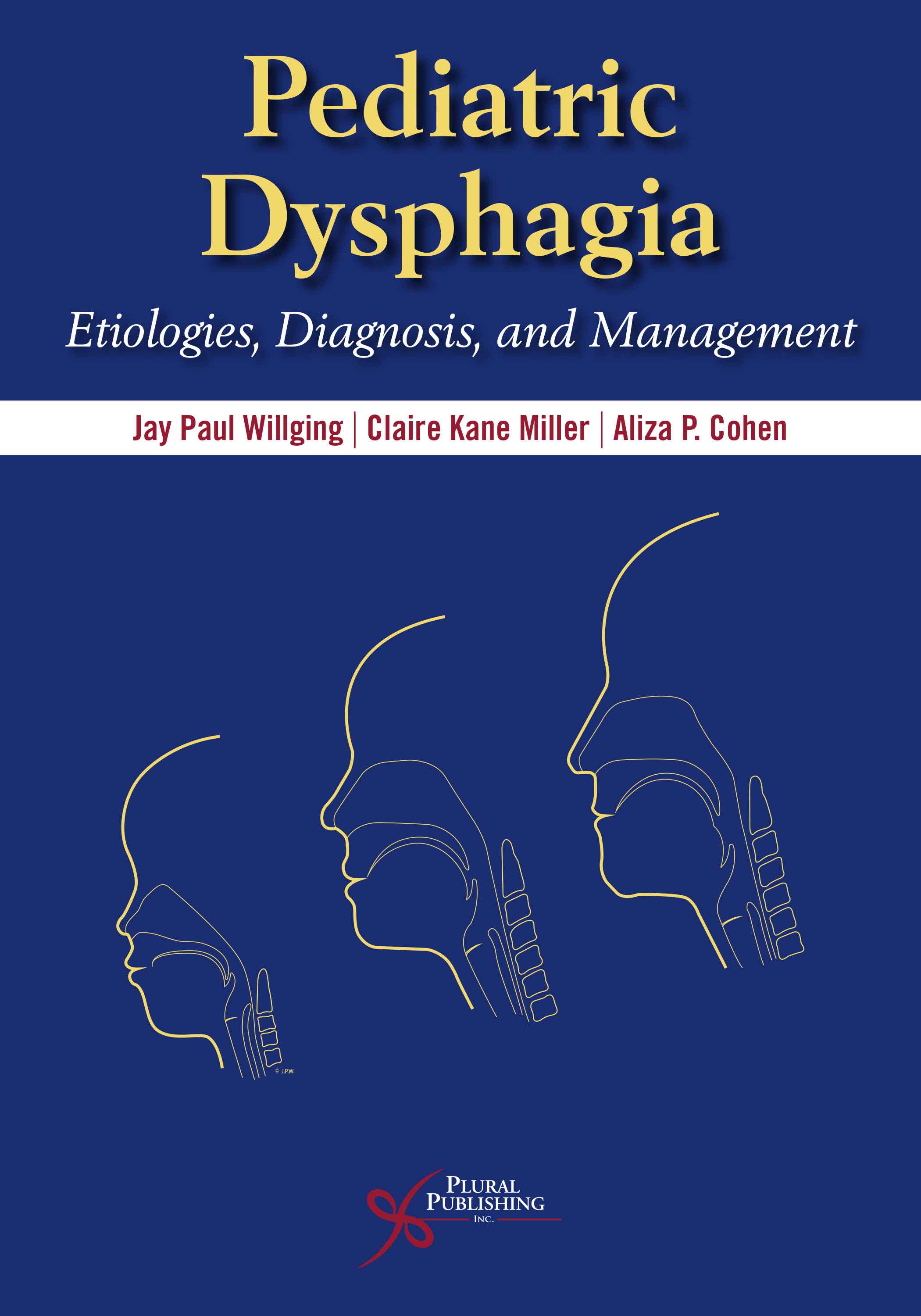
Pediatric Dysphagia: Etiologies, Diagnosis, and Management
First Edition
Jay Paul Willging, Claire Kane Miller, Aliza P. Cohen
Details: 720 pages, Full Color, Hardcover, 7" x 10"
ISBN13: 978-1-59756-864-7
© 2020 | Available
For Instructors
Purchase
Pediatric Dysphagia: Etiologies, Diagnosis, and Management is a comprehensive professional reference on the topic of pediatric feeding and swallowing disorders. Given that these disorders derive from abnormalities in the function and/or structure of the airway and digestive systems, multiple clinical specialists may be involved in the evaluation and management of affected children at any given point in time. Therefore, this text includes significant contributions from a wide range of experts in pediatric dysphagia, including all members of the Interdisciplinary Feeding Team at Cincinnati Children’s Medical Center. These experts present an in-depth description of their roles in the diagnosis and management of dysphagic children, providing the reader with an understanding of why a multidisciplinary model of care is key to the optimization of outcomes.
Pediatric Dysphagia is divided into five parts. In Part I, readers are provided with an overview of the embryologic development of aerodigestive structures that relate to swallowing, an introduction to neural organization related to swallowing function and physiologic aspects of swallowing, a synopsis of oral motor development, a discussion of the various etiologic categories of feeding and swallowing disorders, and an overview of genetic disorders associated with feeding and swallowing issues. Part II covers the clinical and instrumental assessment of patients, including the interdisciplinary feeding team infrastructure and function, the roles of individual members of the feeding team, the specific diagnostic tests commonly used in the assessment of feeding and swallowing issues, the classification of neonatal intensive care units, and the assessment and management of feeding and swallowing issues encountered in the neonatal intensive care unit. Part III focuses on the management of pediatric dysphagia, covering a wide range of treatment strategies and interventions for children with various categories of feeding disorders. Part IV includes an introduction to the concept of evidence-based practice and the application of evidence-based strategies in the management of dysphagia. Part V presents a brief overview of the role of ethics in healthcare and ethical considerations in the treatment of dysphagic children.
In summary, the overall aim of this comprehensive text is to provide all pediatric professionals involved in the care of dysphagic patients with a basic understanding of the complexity of this disorder, the anatomic, neurologic, and physiologic components involved in this disorder, an overview of the diverse population of children who suffer with this disorder, and with a wide range of management approaches based on patient needs and capabilities. The authors also address clinical problem solving and decision making, inspiring readers to develop multidisciplinary models of care at their own institutions.
Reviews
"The text is well set out throughout, with headed paragraphs, nicely reproduced tables and line diagrams and a comprehensive index. [...] This book should have a very wide appeal, addressing as it does a largely neglected topic, which requires an input from a host of specialists. Its greatest value in our speciality will be to those training in, or with an established practice in, paediatric otolaryngology."
—Liam M. Flood, FRCS, FRCSI, in Journal of Laryngology & Otology (March 2020)
“This book is an up-to-date and comprehensive textbook that gives an in-depth understanding and management of all aspects relating to dysphagia. Members of the interdisciplinary team at Cincinnati Children’s Hospital Medical Centre, who have an extensive experience in the management of paediatric dysphagia, have authored it.
It is easy to read and lays firmly the foundations for understanding the embryological, physiological and anatomical components contributing to dysphagia. It continues to discuss clinical and instrumental dysphagia assessments in various settings, including neonatal intensive care. The text takes into account the need for a holistic multidisciplinary approach in the diagnosis and management of this complex condition before moving on to cover a wide range of treatment strategies and interventions for children with various categories of dysphagia, taking into consideration current evidence and its role in decision making. It concludes with an overview on the role of ethics in treating children with dysphagia.
This textbook is aimed at all clinicians with a practice consisting of children with dysphagia resulting from a variety of aetiologies (paediatricians, paediatric ENT surgeons, paediatric surgeons and speech and language therapists). It is a useful guide for trainees as well and a great resource for those setting up paediatric dysphagia services within their units. The book is good value for money, and an up-to-date and evidence-based complete guide in the multidisciplinary and holistic management of children with dysphagia.”
— Tawakir Kamani, MD, MRCS, DOHNS, MSc, FRCS (ORL-HNS), Queens Medical Centre, Nottingham University Hospital NHS Trust, in ENT & Audiology News (September 2021)
Foreword by Robin T. Cotton
Preface
About the Editors
Acknowledgments
Contributors
Part I. Foundations
Section 1. Embryology
Chapter 1. Embryologic Development of Aerodigestive Structures that Relate to Swallowing
Claire Kane Miller, Aliza P. Cohen, and Jay Paul Willging
Section 2. Neural Control of Swallowing
Chapter 2. Neural Organization Related to Swallowing
Claire Kane Miller, Lisa N. Kelchner, and Jay Paul Willging
Chapter 3. Cranial Nerves Associated with Swallowing
Claire Kane Miller, Lisa N. Kelchner, and Jay Paul Willging
Chapter 4. Three Phases of Swallowing
Claire Kane Miller, Lisa N. Kelchner, and Jay Paul Willging
Chapter 5. Respiration, Swallowing, and Protective Reflexes
Claire Kane Miller, Lisa N. Kelchner, and Jay Paul Willging
Section 3. Oral Motor Development
Chapter 6. Oral Motor Development
Claire Kane Miller, Aliza P. Cohen, and Jay Paul Willging
Section 4. Etiologies
Chapter 7. Syndromes, Sequences, and Associations
Claire Kane Miller, Aliza P. Cohen, and Jay Paul Willging
Chapter 8. Neurologic Etiologies
Claire Kane Miller, Aliza P. Cohen, and Jay Paul Willging
Chapter 9. Structural Etiologies
Claire Kane Miller, Aliza P. Cohen, and Jay Paul Willging
Chapter 10. Respiratory Conditions
Claire Kane Miller, Aliza P. Cohen, and Jay Paul Willging
Chapter 11. Cardiac Conditions
Claire Kane Miller, Aliza P. Cohen, and Jay Paul Willging
Chapter 12. Functional Disorders of the Esophagus
Claire Kane Miller, Aliza P. Cohen, and Jay Paul Willging
Chapter 13. Functional Disorders of the Gastrointestinal Tract
Claire Kane Miller, Aliza P. Cohen, and Jay Paul Willging
Chapter 14. Sensory Processing Disorders
Claire Kane Miller, Jennifer Maybee, Aliza P. Cohen, and Jay Paul Willging
Chapter 15. Metabolic Disorders
Claire Kane Miller, Aliza P. Cohen, and Jay Paul Willging
Chapter 16. Psychosocial and Behavioral Disorders
Claire Kane Miller, Lori Vincent, Aliza P. Cohen, and Jay Paul Willging
Section 5. Genetics
Chapter 17. Genetic Syndromes and Disorders and Their Associated Feeding Issues
Claire Kane Miller, Aliza P. Cohen, and Jay Paul Willging
Part II. Clinical and Instrumental Assessment
Section 6. Interdisciplinary Feeding Team
Chapter 18. Team Infrastructure and Function
Claire Kane Miller, Aliza P. Cohen, and Jay Paul Willging
Chapter 19. Role of the Pediatric Otolaryngologist
Jay Paul Willging
Chapter 20. Role of the Pulmonologist
Dan T. Benscoter
Chapter 21. Role of the Pediatric Gastroenterologist
Vincent Mukkada, Aliza P. Cohen, and Jay Paul Willging
Chapter 22. Role of the Registered Nurse
Candace J. Hochstrasser
Chapter 23. Role of the Nurse Practitioner
Candace J. Hochstrasser
Chapter 24. Role of the Registered Dietician
Amy E. Reed
Chapter 25. Role of the Pediatric Speech-Language Pathologist
Claire Kane Miller
Chapter 26. Role of the Occupational Therapist
Elizabeth J. Kirby
Chapter 27. Role of the Social Worker
Sarah M. Weller
Chapter 28. Case Study Reflecting Interdisciplinary Feeding Team Approach
Claire Kane Miller
Section 7. Oral Motor Feeding Assessment
Chapter 29. Clinical Oral Motor Feeding Assessment
Claire Kane Miller, Aliza P. Cohen, and Jay Paul Willging
Section 8. Instrumental Assessment
Chapter 30. The Videofluoroscopic Swallowing Study
Claire Kane Miller, Steven J. Kraus, Aliza P. Cohen, and Jay Paul Willging
Chapter 31. Fiberoptic Evaluation of Swallowing
Claire Kane Miller, Aliza P. Cohen, and Jay Paul Willging
Chapter 32. Adjunctive Diagnostic Testing in the Evaluation of Pediatric Dysphagia
Charles M. Myer IV, Claire Kane Miller, Aliza P. Cohen, and Jay Paul Willging
Section 9. Assessment and Management of Feeding and Swallowing Issues in the Neonatal Intensive Care Unit
Chapter 33. Classification of Neonatal Intensive Care Units
Claire Kane Miller, Alison S. Riley, Brenda K. Thompson, and Ann Clonan
Chapter 34. Selective Conditions Frequently Seen in the Neonatal Intensive Care Unit
Claire Kane Miller, Alison S. Riley, Brenda K. Thompson, and Ann Clonan
Chapter 35. The Neonate in the Neonatal Intensive Care Unit Environment
Claire Kane Miller, Alison S. Riley, Brenda K. Thompson, and Ann Clonan
Chapter 36. Feeding Assessment of Neonates in the Neonatal Intensive Care Unit
Claire Kane Miller, Alison S. Riley, Brenda K. Thompson, and Ann Clonan
Chapter 37. Therapeutic Interventions in the Neonatal Intensive Care Unit
Claire Kane Miller, Alison S. Riley, Brenda K. Thompson, and Ann Clonan
Part III. Management of Pediatric Dysphagia
Section 10. Overview of Treatment Strategies
Chapter 38. Overview of Treatment Strategies
Claire Kane Miller, Aliza P. Cohen, and Jay Paul Willging
Chapter 39. Management of Feeding Issues in Infants and Children with Craniofacial Anomalies
Claire Kane Miller, Aliza P. Cohen, and Jay Paul Willging
Chapter 40. Management of Dysphagia in Children with Underlying Neurogenic Conditions
Claire Kane Miller, Aliza P. Cohen, and Jay Paul Willging
Section 11. Sensory Processing Disorders
Chapter 41. Sensory Processing Disorders and Regulatory Issues that Affect Feeding
Claire Kane Miller and Jennifer Maybee
Chapter 42. Interventions for Sensory Processing Disorders
Claire Kane Miller and Jennifer Maybee
Section 12. Behavioral Feeding Disorders and Intervention Strategies
Chapter 43. Behavioral Feeding Disorders
Claire Kane Miller and Lori B. Vincent
Chapter 44. Behavioral Assessment
Claire Kane Miller and Lori B. Vincent
Chapter 45. Behavioral Feeding Interventions
Claire Kane Miller and Lori B. Vincent
Section 13. Management of Gagging, Retching, and Tube Feeding Issues
Chapter 46. Management of Gagging, Retching, and Tube Feeding Issues
Therese O’Flaherty, Aliza P. Cohen, and Jay Paul Willging
Part IV. Evidence-Based Medicine
Section 14. Evidence-Based Practice and Assessing Outcomes in Pediatric Dysphasia
Chapter 47. Levels of Evidence
Claire Kane Miller
Chapter 48. Components of Evidence-Based Practice
Claire Kane Miller
Chapter 49. Establishing Care Recommendations, Clinical Pathways, and Treatment Protocols
Claire Kane Miller
Chapter 50. Integrating Functional Outcomes in the Dysphagia Treatment Plan
Claire Kane Miller
Part V. Ethics in Pediatric Dysphagia
Section 15. Ethics in Pediatric Dysphagia
Chapter 51. Ethics in Pediatric Dysphagia
Candace Ganz and Claire Kane Miller
Index
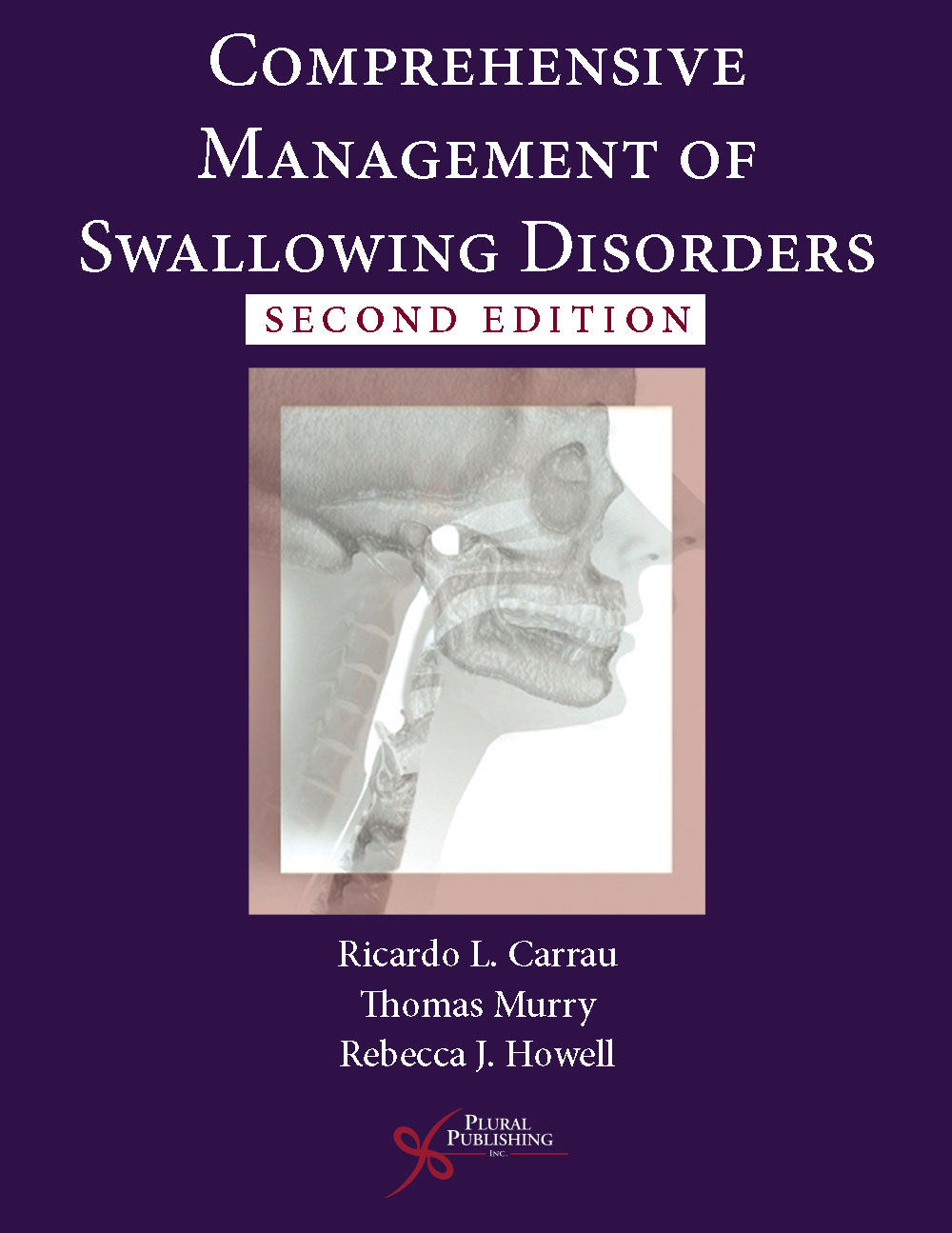
Comprehensive Management of Swallowing Disorders
Second Edition
Ricardo L. Carrau, Thomas Murry, Rebecca J. Howell
Details: 576 pages, B&W, Softcover, 8.5" x 11"
ISBN13: 978-1-59756-730-5
© 2017 | Available

Management of Swallowing and Feeding Disorders in Schools
First Edition
Emily M. Homer
Details: 318 pages, B&W, Softcover, 6" x 9"
ISBN13: 978-1-59756-515-8
© 2016 | Available
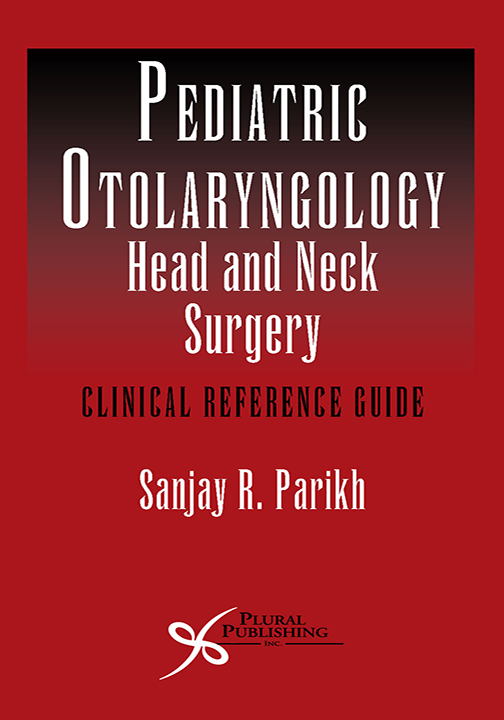
Pediatric Otolaryngology-Head and Neck Surgery: Clinical Reference Guide
First Edition
Sanjay R. Parikh
Details: 752 pages, B&W, Softcover, 4.5" x 8"
ISBN13: 978-1-59756-528-8
© 2014 | Available
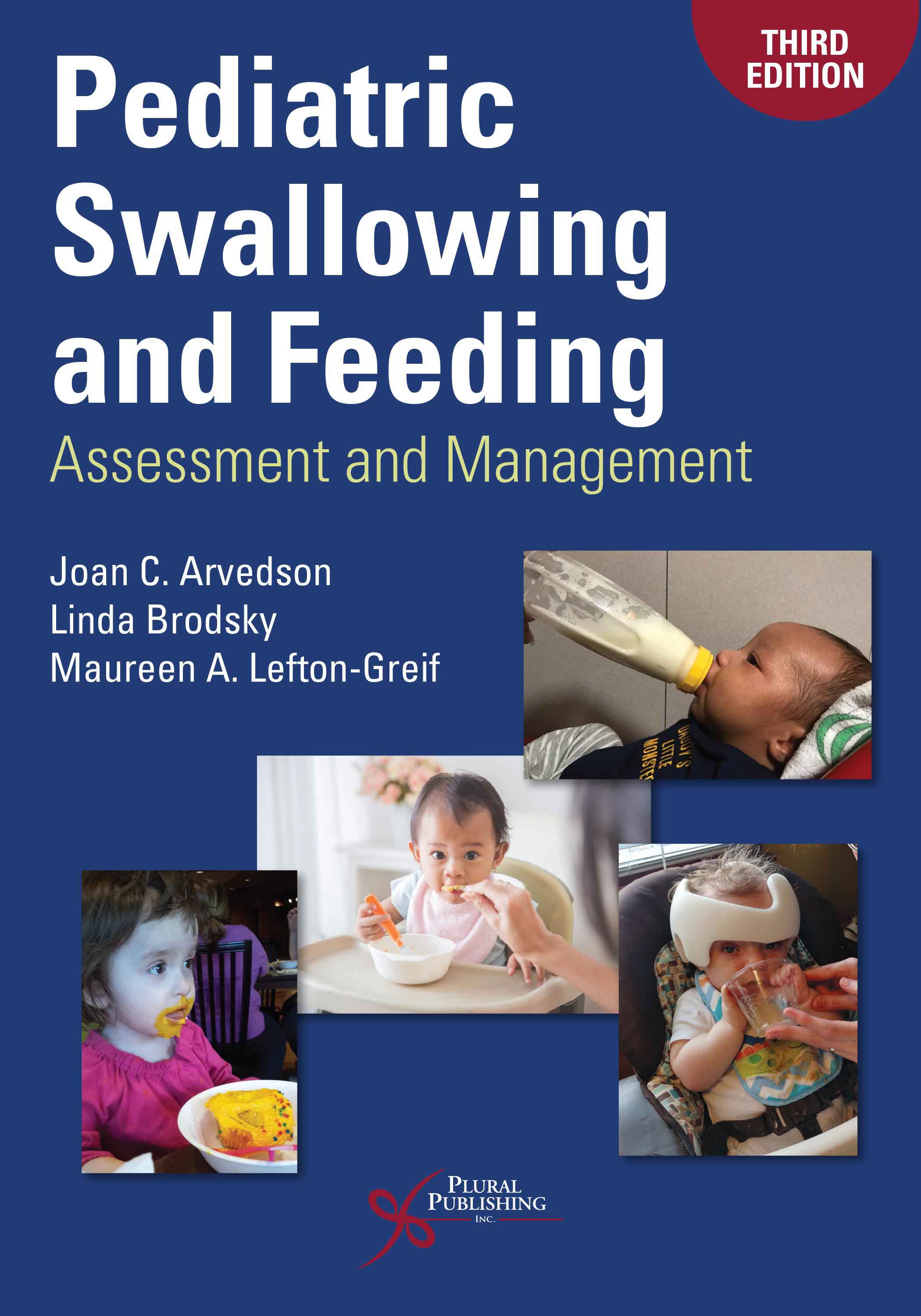
Pediatric Swallowing and Feeding: Assessment and Management
Third Edition
Joan C. Arvedson, Linda Brodsky, Maureen A. Lefton-Greif
Details: 602 pages, B&W, Softcover, 7" x 10"
ISBN13: 978-1-94488-351-5
© 2020 | Available

Rare Disorders that Cause Dysphagia: A Guide for Speech-Language Pathologists
First Edition
Violet O. Cox
Details: 217 pages, B&W, Softcover, 6" x 9"
ISBN13: 978-1-63550-142-1
© 2020 | Available
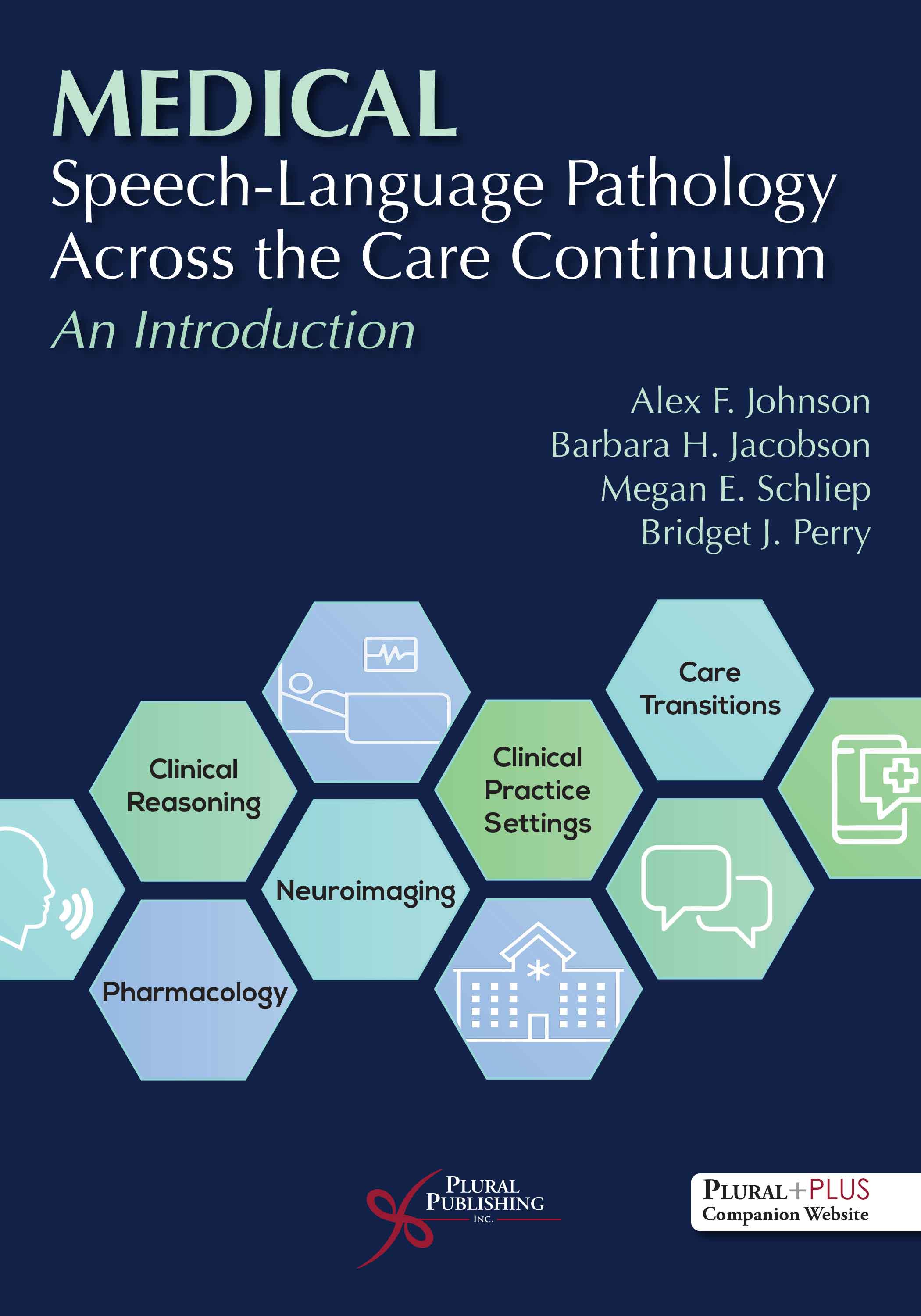
Medical Speech-Language Pathology Across the Care Continuum: An Introduction
First Edition
Alex F. Johnson, Barbara H. Jacobson, Megan E. Schliep, Bridget J. Perry
Details: 378 pages, Full Color, Softcover, 7" x 10"
ISBN13: 978-1-63550-268-8
© 2024 | Available
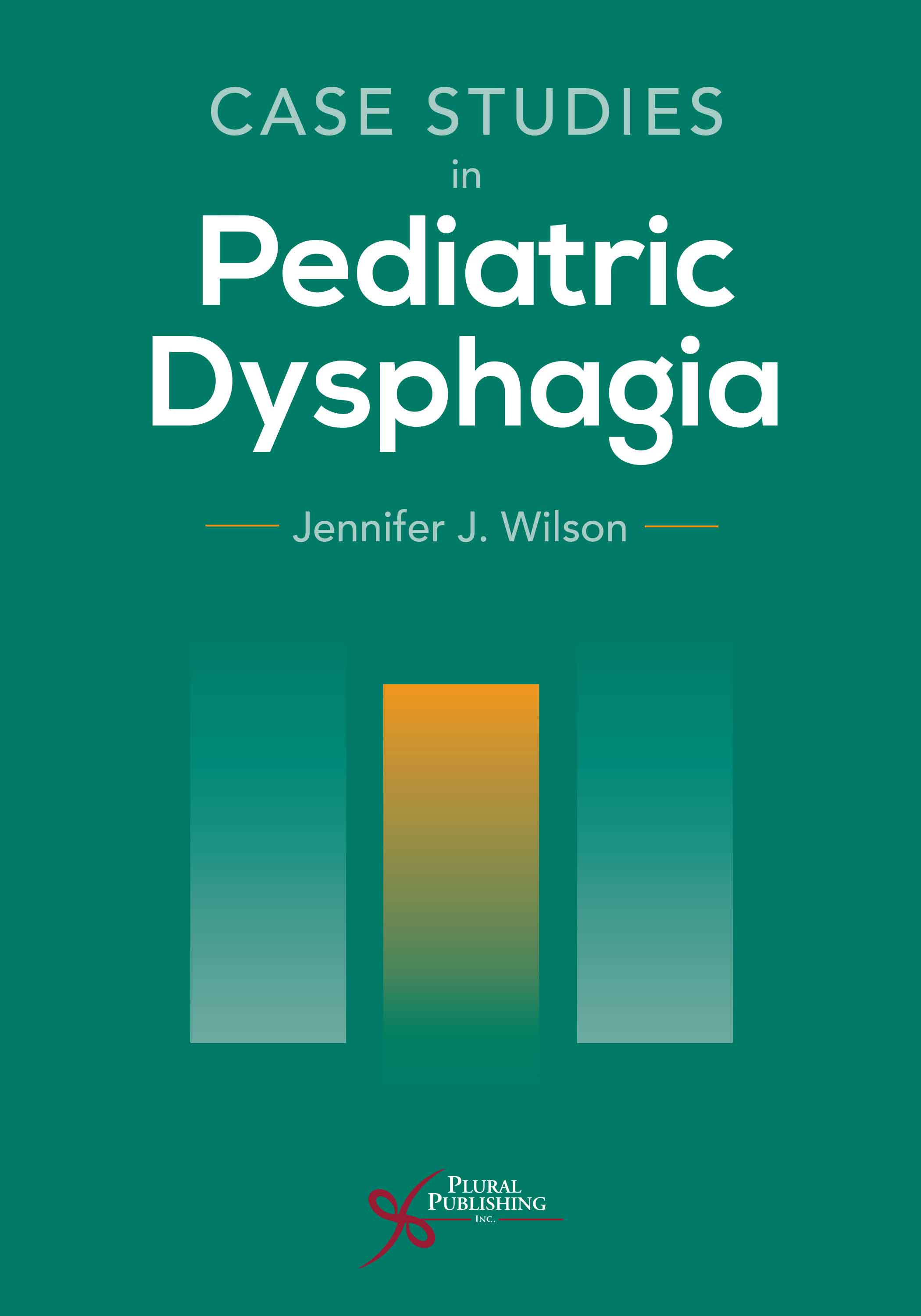
Case Studies in Pediatric Dysphagia
First Edition
Jennifer J. Wilson
Details: 208 pages, B&W, Softcover, 7" x 10"
ISBN13: 978-1-63550-397-5
© 2023 | Available
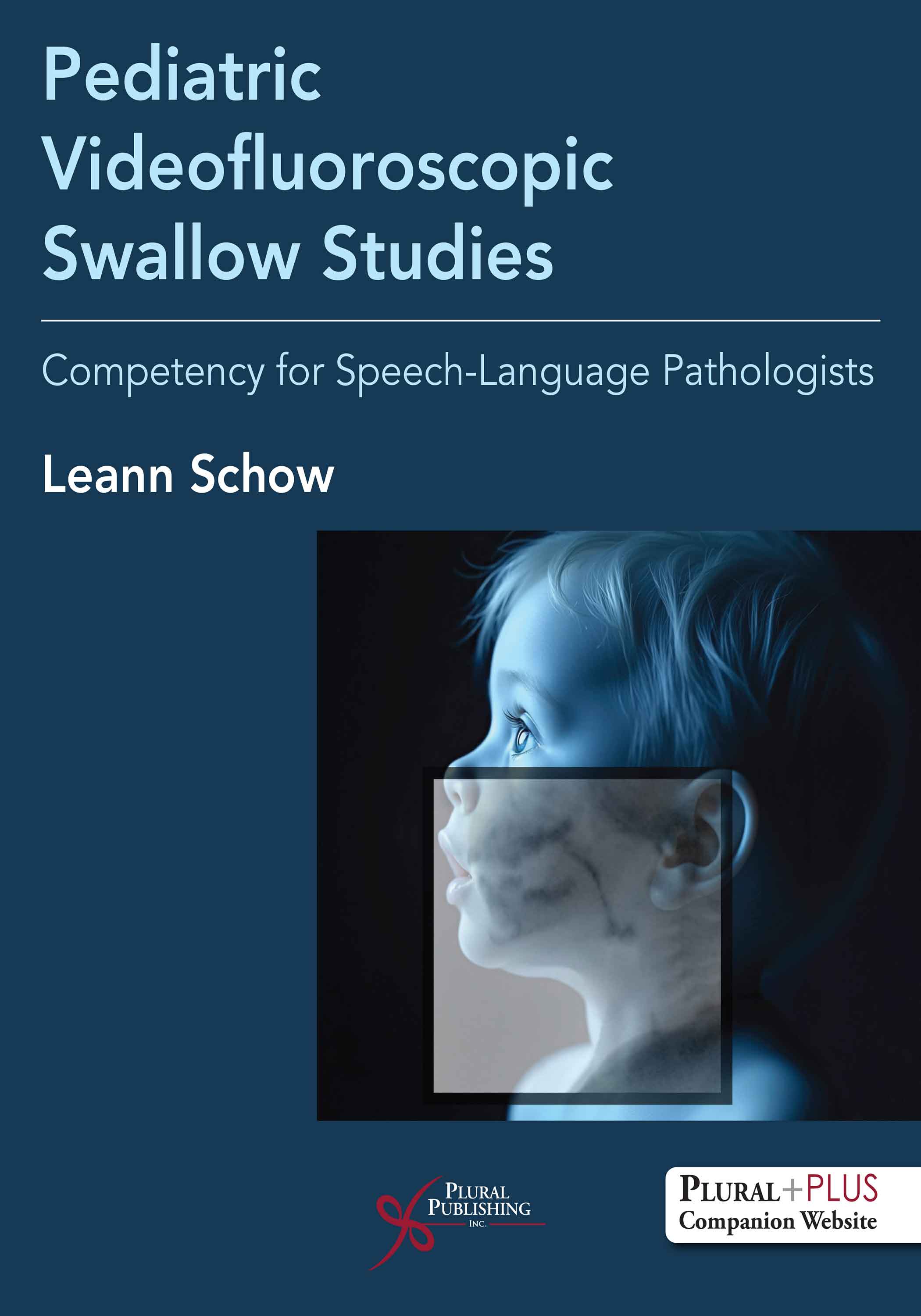
Pediatric Videofluoroscopic Swallow Studies: Competency for Speech-Language Pathologists
First Edition
Leann Schow
Details: 357 pages, B&W, Softcover, 8.5" x 11"
ISBN13: 978-1-63550-497-2
© 2026 | Available



